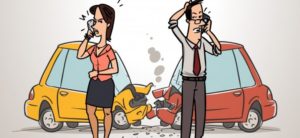What Happens if My Auto Accident Claim Doesn’t Settle?
Auto accidents and their severity may vary, but all claimants want to get through the process as quickly as possible and get to the end settlement. Most claims will settle outside of court, but occasionally they don’t, and claimants may understandably want to know how the litigation process works and how it may affect their claim overall.
Let’s look at this process in detail, as well as other factors that must be considered:
The Reasons Why It’s Advantageous to Settle Outside of Court
Before we discuss litigation, it’s important to note the reasons why attorneys and claimants try to avoid it in the first place. First and foremost, it’s very expensive–legal fees, court fees, and the costs of expert witnesses make it so that most cases that go to trial have large sums of money hanging in the balance, enough to shoulder those costs.
Trials are extremely intensive and sometimes invasive, in the sense that you will be forced to give detailed testimonies, answer a lot of personal questions, and review your previous medical history. For many claimants, this process may feel as if they are constantly reliving a traumatic experience that they hoped to put behind them.
The final reason why litigation is often avoided is because at the end of the day, any trial in court is a massive gamble. If you accept a subpar settlement, you can at least take solace in the fact that you did recover something. However, if your trial is unsuccessful, you could walk away with nothing, which is obviously the worst-case scenario. The fear of losing everything is what drives most attorneys to avoid litigation if possible.
For a free legal consultation, call (725) 900-9000
Some Cases Just Won’t Settle–Why?
All of that being said, sometimes an out-of-court settlement is just not possible. There are numerous reasons as to why a given claim may not settle, but the biggest by far is conflict regarding liability. Nobody wants to willingly accept blame, especially when a large sum is attached to it, but sometimes a defendant’s obstinance will prevent a settlement altogether. This is especially true for wealthy or influential defendants who are confident in their ability to either win at trial or make the case expensive enough that the plaintiff will have to eventually back down. In other cases, defendants may rely on contributory negligence laws to assert that the plaintiff was partially responsible for the accident themselves.
Sometimes an insurance company may force you to go to trial because they refuse to offer a proper settlement amount for whatever reason. Insurance adjusters get paid to fight tooth and nail against paying full value for claims, and this usually includes disputes over the severity of physical injuries and the value of property that was damaged in the accident. In such a case, trial is usually the only option if claimants hope to recover full compensation.
What Goes Into the Litigation Process?
Whenever a claim proceeds to litigation, it essentially starts over with a new audience and new rules. The first step is known as the discovery process, in which your attorney will produce all the relevant documents and evidence that they can, including interrogatories, which are written questions that are answered by the defendants under oath. If they refuse to cooperate with any part of the discovery process, your attorney can file what’s known as a motion to compel compliance, which is exactly what it sounds like.
After that, the next phase is called the deposition process. These are out-of-court testimonies that are given in the presence of witnesses and court reporters. During the deposition process, your attorney will speak with several parties related to the case and ask questions, and the opposing party will do the same. Plaintiffs should always make sure to consult with their attorney before going into a deposition, as you can hurt your case by saying the wrong things. Overall, it’s usually a very emotional, intensive process.
What to Expect at Trial
After the discovery and deposition processes have been completed, a date for trial will be established. The trial process for accident claims is the same as it is for criminal cases, in the sense that: a jury will have to be chosen; witnesses will be called to give statements, and may be cross-examined; closing arguments will be given; and finally, the jury will deliver a verdict. If a verdict is favorable to the plaintiff, the work will have paid off, and if it is not favorable, motions and appeals will still be possible.
Click to contact our personal injury lawyers today
Questions About Accident Claims? Connect With VLF Today
If you have questions about a claim that won’t settle, or if an insurer is offering you less than your injuries warrant, contact the award-winning team of auto accident attorneys from Van Law Firm as soon as possible. We can review your case and determine the best course of action to recover maximum compensation. An auto accident is stressful enough as it is–don’t let the claim process deter you from defending your rights. Call our office nearest you to schedule a no-cost, no-obligation consultation.
No obligation consultations are always free.
Let Us Help You! Call Now: (725) 900-9000


